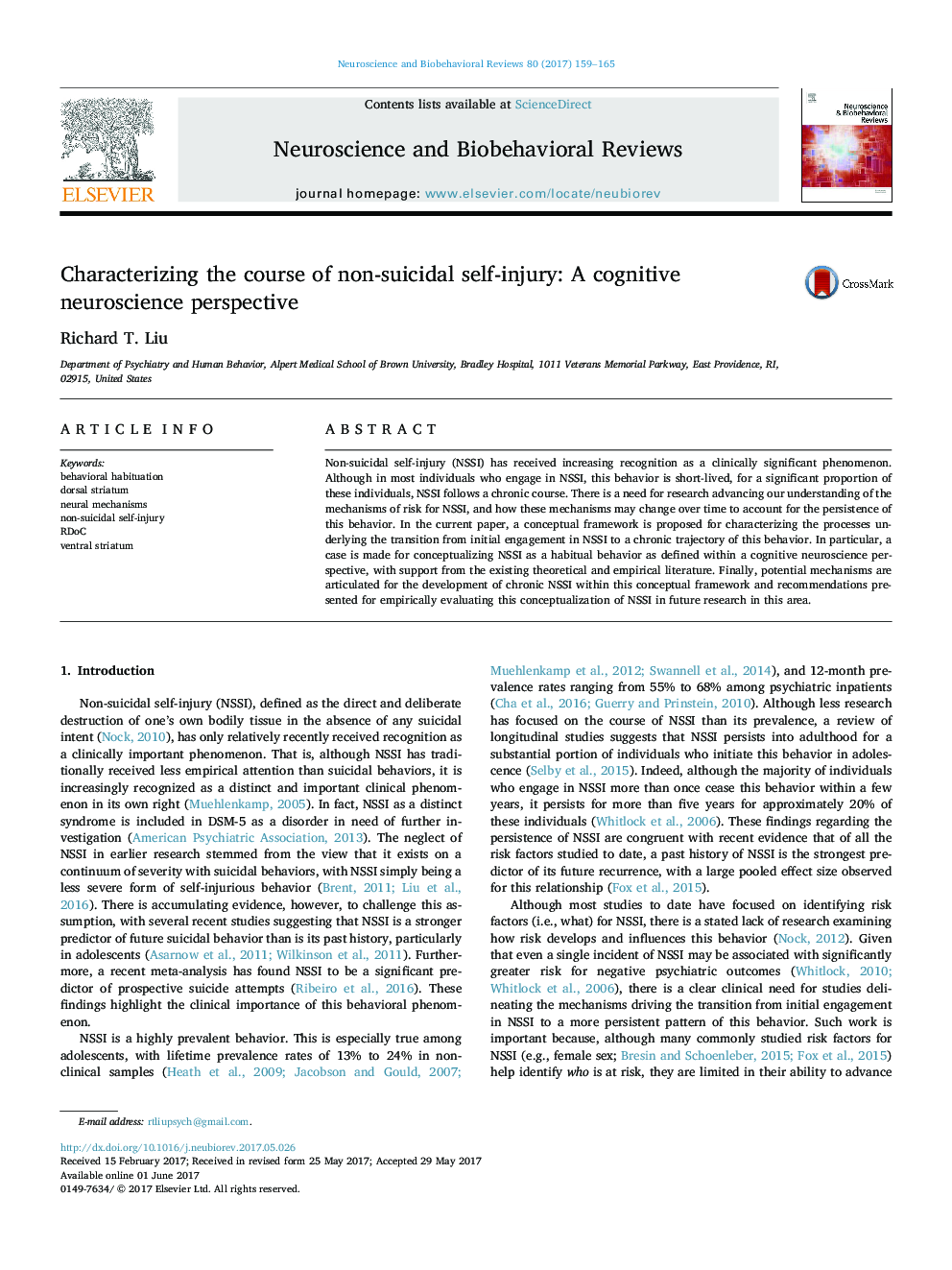| Article ID | Journal | Published Year | Pages | File Type |
|---|---|---|---|---|
| 5043439 | Neuroscience & Biobehavioral Reviews | 2017 | 7 Pages |
â¢A cognitive neuroscience conceptualization of non-suicidal self-injury is presented.â¢This behavior's self-reinforcing properties may lead it to become fixed over time.â¢It may require reduced effort over time due to decreased physical pain aversion.â¢Reduced effort may also result from increased self-schema for self-harm over time.â¢Specific recommendations for future research are presented.
Non-suicidal self-injury (NSSI) has received increasing recognition as a clinically significant phenomenon. Although in most individuals who engage in NSSI, this behavior is short-lived, for a significant proportion of these individuals, NSSI follows a chronic course. There is a need for research advancing our understanding of the mechanisms of risk for NSSI, and how these mechanisms may change over time to account for the persistence of this behavior. In the current paper, a conceptual framework is proposed for characterizing the processes underlying the transition from initial engagement in NSSI to a chronic trajectory of this behavior. In particular, a case is made for conceptualizing NSSI as a habitual behavior as defined within a cognitive neuroscience perspective, with support from the existing theoretical and empirical literature. Finally, potential mechanisms are articulated for the development of chronic NSSI within this conceptual framework and recommendations presented for empirically evaluating this conceptualization of NSSI in future research in this area.
